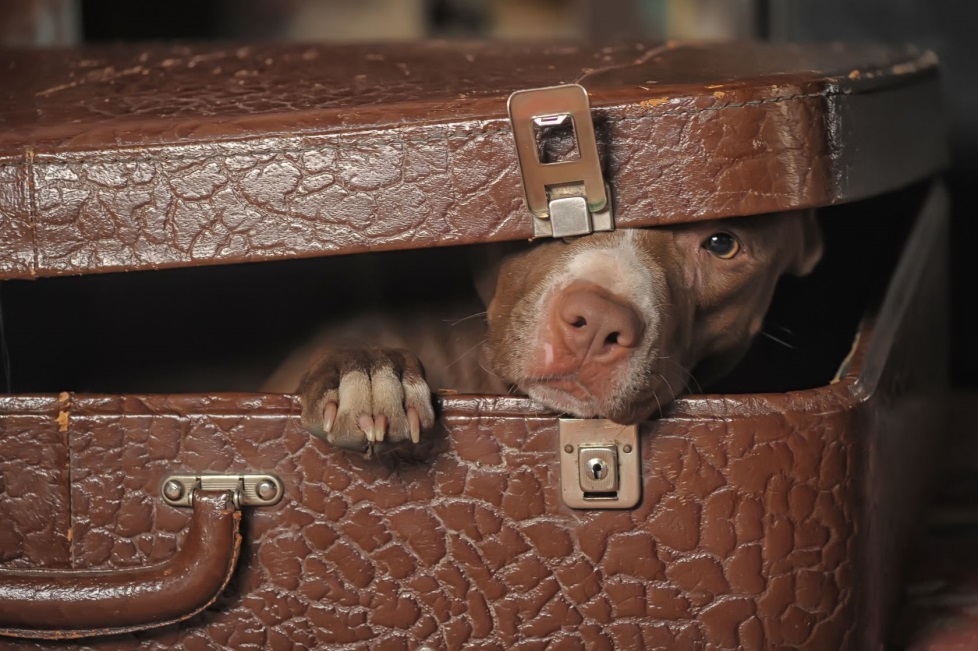In a grooming salon, your four footed clients need your full attention. 110% of it. Every day.
Let’s face it, we love dogs. The last thing we would want to do as a pet professional is hurt a dog (or cat), but there are countless dangers lurking around every corner of a grooming salon for a pet if we are not on top of our game. We work with a wide variety of sharp instruments. Tools that can cut, tear and cause abrasions to the skin if used incorrectly. There are many products that can burn or irritate the skin if not used properly or removed thoroughly. If a pet fell from a grooming table or bathtub, it could cause injury or even death to a pet in our care. Improper and unsupervised drying procedures can kill a dog. Incorrect or rough handling can seriously hurt a pet.
Becoming a pet grooming professional can be an enormously rewarding career but it takes training and practice. Lots of practice. Correct practice. Sure, our role is to clean and make the pet look nice but it’s more than that. It’s about keeping the pet safe. Winning its’ trust. Making the grooming experience as pleasant as possible for the animal.
It’s important to remember that our four footed clients are animals. They are going to think and react like an animal. No amount of humanizing a pet will ever change the fact they are hard wired to be a dog (or cat). When a pet comes through our doors, all their senses are heightened. They are on high alert. They live in the moment – and that moment can change in an instant depending on whom and what is happening to them.
In a dog’s world their current environment is either stable or unstable. They have the same senses we do, but do not rely on them in the same order as humans do. A dog interprets the world predominantly by smell, whereas a human interprets it by sight. Dogs also have a highly developed universal sense where they can feel the energy (emotions) of the other beings around them.
Pheromones are chemicals that provide animals with information about another animal’s emotions, mental state or behavior. Both people and dogs release pheromones and dogs are able to smell the pheromones of other dogs days after they’ve been secreted. Dogs can also detect pheromones in people.
Like pheromones, dogs can pick up the scent of select hormones. Cortisol is a hormone associated with stress in both humans and dogs. Pets can presumably detect stress in people because they secrete the same hormones as stressed dogs. People also release hormones associated with a variety of other factors including sexual arousal, anger, fear and illness or disease. Dogs may be able to interpret the meaning of at least some of these hormones.
Both the wild canine species and dogs exhibit complex body language. Small, almost undetectable tail, eye and facial movements give dogs valuable clues about emotions and intentions. Because dogs can’t speak, they are accomplished readers of human body language. A pet may detect that a person is afraid or angry long before people notice. This is not because of a magical sixth sense but rather a result of acute powers of observation.
Dogs are acutely aware of energy. Energy is a combination of many factors but it combines body language and smell. People understand energy too, but dogs sense it at a higher level due to their enhanced levels of observation and smell.
If you work with pets, it’s crucial that your emotional baggage get checked at the door. I can guarantee your co-workers don’t want to hear about your personal woes. And I promise the pets are going to reactive negatively to your penned up emotions. If those emotions are anything other than calm-assertive energy, the dog is going to know it.
It takes dogs only an instant to figure out what kind of energy you are projecting. If you are working professionally with pets, it’s critical you gain full control of your presence. You want to project calmness. You want to instill confidence. There cannot be a question of who is in charge of the situation.
If your personal emotional baggage crossed into the grooming salon – you are in for a rough day. Experts agree that how we feel has a major impact on how our dogs are going to behave.
Yes, being a professional pet groomer can be highly rewarding. But it also is a big responsibility. With every snip, clip, brush and comb, dangers lurk for your four footed clients. They need your full attention 110% of it every day – and every moment – to win their trust and cooperation while keeping them safe. That’s your job.
Happy Trimming!
~Melissa


